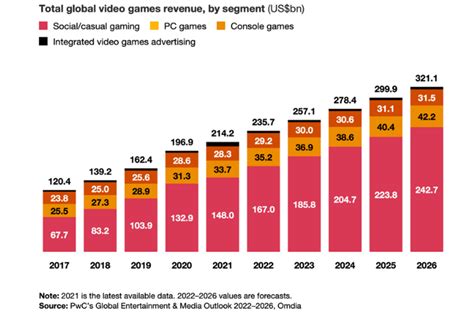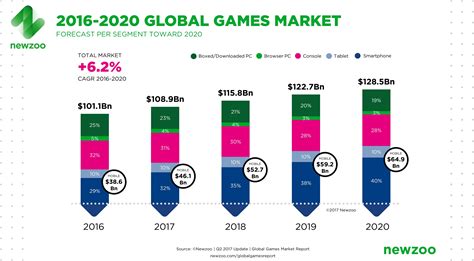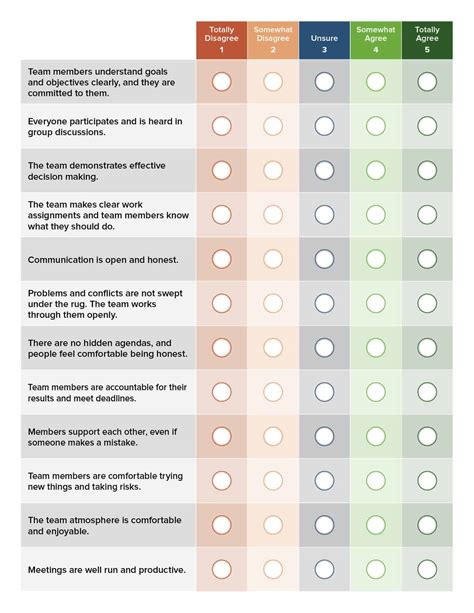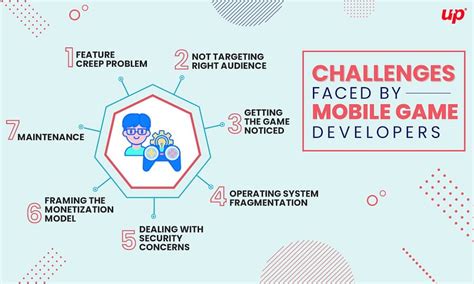Breaking News


Popular News


Discover the effects of COVID-19 on the mobile gaming industry, including increased demand, changing player preferences, and new challenges facing developers.The Impact of COVID-19 on the Mobile Gaming Industry
The COVID-19 pandemic has caused significant shifts in various industries around the world, and the mobile gaming industry is no exception. As people spent more time at home, there has been a surge in the demand for mobile gaming as a form of entertainment. This has led to changes in player behavior and preferences, with more people turning to mobile games to keep themselves entertained and connected with others.
With the increased demand for mobile gaming, there has also been a surge in mobile game downloads, as well as a shift in mobile game monetization strategies. As a result, mobile game developers are facing new challenges in meeting the needs and expectations of their players, while also adapting to the changing landscape of the industry.
In this blog post, we will explore the various ways in which COVID-19 has impacted the mobile gaming industry, and the challenges and opportunities that have arisen as a result.
Contents

With the outbreak of COVID-19, there has been a significant increase in the demand for mobile gaming. As people are spending more time indoors and practicing social distancing, they are turning to mobile games as a form of entertainment and escapism. This surge in demand has been fueled by the need for activities that can be enjoyed from the comfort and safety of one’s own home.
Furthermore, the increased demand for mobile gaming can also be attributed to the fact that many individuals are working from home and have additional free time due to the lack of a commute. As a result, they are looking for ways to unwind and de-stress, and mobile games provide a convenient and readily accessible option for doing so.
Additionally, the closure of public spaces such as movie theaters, sports venues, and theme parks has led to a shift in consumer behavior, with more people seeking digital entertainment options. This has created a prime opportunity for the mobile gaming industry to meet the needs of these individuals and capture a larger audience.
Overall, the COVID-19 pandemic has undeniably led to a significant and sustained increase in the demand for mobile gaming, prompting game developers to adapt to this new landscape and provide innovative and engaging experiences for players.

One of the most notable changes in the mobile gaming industry brought about by the COVID-19 pandemic is the shift in player behavior and preferences. With people spending more time at home due to lockdowns and social distancing measures, there has been a significant increase in the amount of time spent on mobile gaming.
This surge in mobile game usage has also led to changes in player preferences. Players are now looking for mobile games that offer a more immersive and engaging experience, as they seek to fill the void left by the lack of outdoor activities and social interactions. There has been a growing demand for games that offer multiplayer features, as players seek to connect with friends and family virtually.
Moreover, there has been a noticeable shift towards mobile games that provide a sense of escapism and relaxation. Games that offer tranquil and visually appealing environments, as well as soothing soundtracks, have gained popularity among players looking for a reprieve from the stress and uncertainty of the current global situation.
As the mobile gaming industry continues to adapt to these changes in player behavior and preferences, game developers and publishers are presented with new opportunities to create innovative and engaging gaming experiences that cater to the evolving needs of players.

The outbreak of the COVID-19 pandemic has led to a surge in mobile game downloads as people around the world have been forced to stay indoors. With restrictions on outdoor activities and social gatherings, many individuals have turned to mobile gaming as a source of entertainment and a way to connect with others virtually.
As people search for ways to combat boredom and stay connected with friends and family while adhering to social distancing guidelines, the demand for mobile games has skyrocketed. This surge in downloads has been observed across various genres, including casual, puzzle, and multiplayer games, as players seek diverse experiences to keep themselves engaged during this challenging time.
Additionally, the availability of a wide range of free and affordable mobile games has made them accessible to a larger audience. The convenience of being able to download and play games on smartphones and tablets has contributed to the increased interest in mobile gaming, especially among individuals who may not have been avid gamers in the past.
As a result, mobile game developers and publishers have seen a significant increase in user acquisition and engagement, prompting them to explore new strategies to capitalize on this trend. This surge in mobile game downloads has not only reshaped the industry but has also opened up opportunities for developers to innovate and adapt to the changing preferences of players.

The mobile gaming industry has witnessed a significant shift in monetization strategies as a result of the ongoing COVID-19 pandemic. With people spending more time at home and relying on their smartphones for entertainment, developers have had to rethink their approach to generating revenue from their games. This shift has been driven by changes in player behavior and preferences, as well as increased demand for mobile gaming.
One of the most noticeable changes in monetization strategies has been the rise of in-game advertising. As players spend more time in mobile games, developers have seized the opportunity to integrate ads seamlessly into the gaming experience. This has allowed them to reach a wider audience and generate revenue without relying solely on in-app purchases.
Additionally, there has been an increase in the use of subscription-based models in mobile games. With the popularity of streaming services and subscription-based platforms, players have become more accustomed to paying for access to content. As a result, developers have started offering subscription-based options for exclusive in-game content and perks, providing a steady stream of revenue.
| Monetization Strategy | Impact |
|---|---|
| In-game advertising | Wider audience reach and additional revenue |
| Subscription-based models | Steady stream of revenue and exclusive content access |
Overall, the shift in mobile game monetization strategies reflects the evolving landscape of the gaming industry. Developers are adapting to meet the changing needs and habits of players, while finding innovative ways to generate revenue in an increasingly competitive market.

One of the biggest challenges faced by mobile game developers is keeping up with the rapid advancements in technology. With new devices and operating systems being released every year, developers have to constantly update their games to ensure compatibility and optimal performance. This can be a daunting task, especially for smaller development teams with limited resources.
Another challenge is standing out in a crowded market. With thousands of new games being released every month, it can be difficult for developers to gain visibility and attract players to their games. This is further exacerbated by the dominance of big players in the industry, making it hard for smaller developers to compete.
Monetization is also a major challenge for developers. While there are various strategies for generating revenue from mobile games, such as in-app purchases, subscriptions, and ads, finding the right balance between profitability and player satisfaction is not easy. Moreover, with the increasing aversion to ads and the rise of free-to-play models, developers have to get creative in their monetization efforts.
Lastly, another significant challenge is keeping up with the ever-changing player preferences. With trends and fads constantly shifting, developers have to be agile and adaptable to cater to the demands of their audience. This requires a deep understanding of player behavior and the ability to predict and respond to future trends effectively.

Mobile gaming has experienced a significant rise, not just as a form of entertainment, but as a cultural phenomenon in recent years. The convenience and accessibility of mobile devices have made gaming a mainstream activity for people of all ages and backgrounds. As a result, the boundaries of traditional gaming platforms have been broken, paving the way for a new era of gaming on the go.
The surge in popularity of mobile gaming can be attributed to several factors. One of the main drivers of this trend is the continuous improvement in the quality of mobile games. With the advancement of technology, mobile game developers are able to create visually stunning and immersive gaming experiences that rival those of traditional gaming consoles. This has led to an increase in demand for mobile gaming from a wider audience.
Another contributing factor to the rise of mobile gaming as a form of entertainment is the proliferation of social gaming. Many mobile games now incorporate social elements that allow players to connect with friends and compete against one another in real time. This social aspect has made mobile gaming more interactive and engaging, further solidifying its position as a preferred form of entertainment for many.
In addition, the COVID-19 pandemic has played a significant role in the rise of mobile gaming. With people spending more time at home and seeking ways to stay entertained, the demand for mobile games has surged. This has led to changes in player behavior and preferences, with more individuals turning to mobile gaming as a means of escapism and social interaction during this challenging time.

How has COVID-19 affected the mobile gaming industry?
COVID-19 has resulted in a surge in mobile gaming activities as people stayed indoors and looked for entertainment options.
What trends have emerged in the mobile gaming industry during the pandemic?
During the pandemic, there has been a rise in the number of new mobile game downloads, increased in-app purchases, and a growing interest in multiplayer and social gaming.
How have mobile game developers adapted to the challenges posed by COVID-19?
Mobile game developers have focused on creating more engaging and social gaming experiences, optimizing game performance for low-end devices, and leveraging advertising to reach a wider audience.
Has the revenue of the mobile gaming industry been impacted by COVID-19?
Yes, the mobile gaming industry has experienced significant revenue growth during the pandemic, with higher user engagement and increased spending on in-game purchases.
What are the long-term effects of COVID-19 on the mobile gaming industry?
The pandemic has accelerated the shift towards mobile gaming as a mainstream form of entertainment, leading to sustained growth and innovation in the industry.
Are there any challenges that the mobile gaming industry has faced due to COVID-19?
Challenges include managing increased server loads, adapting to remote work conditions, and addressing the mental health impact of excessive gaming during the pandemic.
What does the future look like for the mobile gaming industry post-COVID-19?
The future of the mobile gaming industry looks promising, with continued expansion, technological advancements, and a focus on creating more inclusive and diverse gaming experiences.